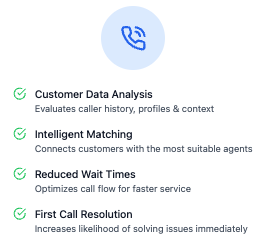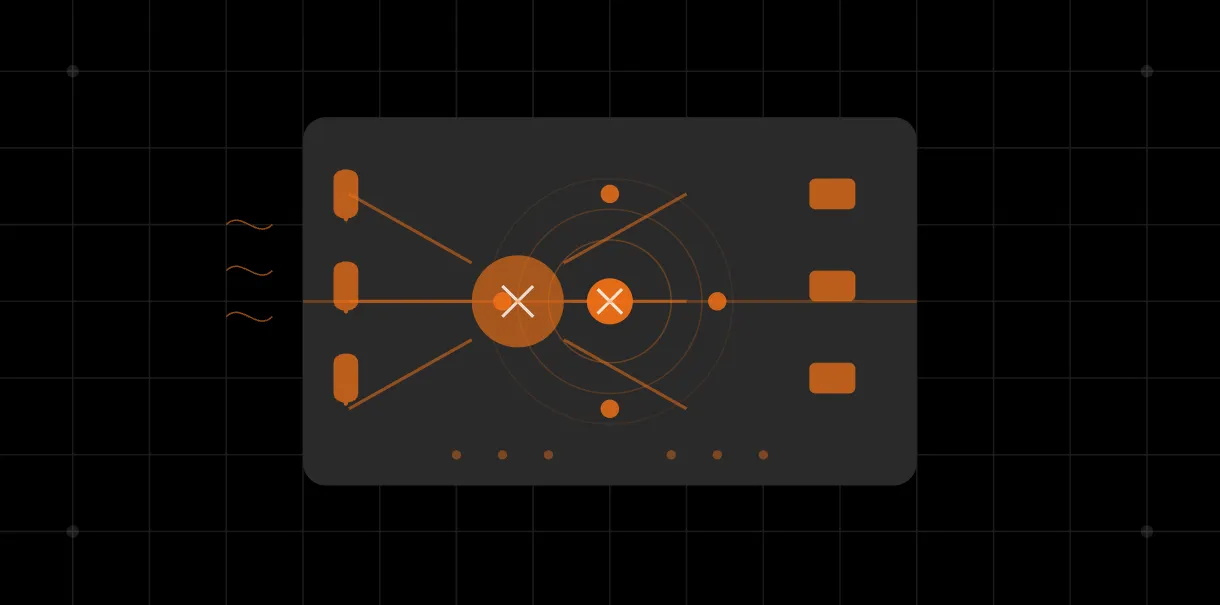Inbound Call Routing Simplified by Intelligent AI Systems: A Guide
Inbound Call Routing Simplified by Intelligent AI Systems: Revolutionizing Customer Service
In today’s fast-paced business world, managing inbound calls effectively can make or break a company’s reputation. As customer expectations continue to rise, companies are turning to artificial intelligence to transform their inbound call routing systems. This technological evolution is not just making things more efficient but reimagining the customer experience.
What is Intelligent Call Routing?
Intelligent Call Routing (ICR) is a cutting-edge technology that leverages artificial intelligence to direct incoming calls to the most suitable agent or department. Designed to simplify the handling of a large number of customer interactions in call centers, ICR ensures high service quality by analyzing various caller information. This includes call history, customer profiles, and the context of the interaction. By identifying the best match for each call, ICR minimizes wait times and increases the likelihood of resolving issues during the first call. This advanced call routing system not only enhances operational efficiency but also significantly boosts customer satisfaction.

The AI Powered Intelligent Call Routing Revolution
Better Customer Experience
The top goal of any customer service operation is to create happy customers. AI powered call routing helps with that by:
-
Connecting callers to the right call center agents based on expertise, language, and issue urgency
-
Using data-driven insights to direct calls to the appropriate specialists or departments
-
Allowing natural, conversational interactions through advanced Natural Language Processing, replacing clunky IVR menus
-
Reducing the frustration of being transferred multiple times by getting customers to the right agent from the start
This translates into higher customer satisfaction and brand loyalty.
Huge Reduction in Wait Times
Nothing tests a customer’s patience more than long hold times. AI routing systems fix that by:
-
Intelligent prioritization of calls based on urgency and customer value
-
Load balancing across available agents based on real-time agent availability to prevent bottlenecks
-
Accurate wait time estimates and callback options when needed
The result is a huge drop in abandonment rates and overall service efficiency.

Operational Efficiency That Drives Bottom Line Results
AI call routing delivers operational benefits that impact the bottom line:
-
Automation of tasks that previously required manual intervention in the call center
-
Reduction of misdirected calls that waste customer and agent time
-
Optimal resource allocation to ensure the right staffing levels at the right times
This equals cost savings and better service.
Personalization at Scale
Customers expect personalization, and automated intelligent call routing makes that possible even in high-volume call centers by:
-
Leveraging customer history, preferences and past interactions to tailor the experience
-
Recognizing returning callers and anticipating their needs based on previous engagements
-
Routing priorities based on customer profiles and relationship value
This personalization creates a unique experience that differentiates businesses from competitors.
Seamless Scalability
Traditional routing systems struggle during peak periods. AI systems thrive by:
-
Handling increased call volume without proportional increase in staff
-
Adapting in real time to unexpected spikes in demand
-
Service quality consistent regardless of volume fluctuations
This means businesses can grow without sacrificing the customer experience.### Actionable Data Driven Insights
Beyond operational benefits AI call routing gives you valuable business intelligence:
-
Real time analytics on call patterns and trends
-
Detailed metrics on agent performance and customer sentiment
-
Predictive insights that inform strategic decisions
This drives continuous improvement in both operational and strategic plans.
How Intelligent Call Routing Works
Intelligent Call Routing is a complex process that involves several key components, including data collection, data analysis, and routing strategy and connection.
Data Collection and Analysis
The initial phase of intelligent call routing involves comprehensive data gathering. This includes collecting details about the caller, such as their phone number, previous interactions, account standing, and the purpose of their call. This information can be obtained from Customer Relationship Management (CRM) systems, Interactive Voice Response (IVR) systems, and even real-time data from live calls. Data analysis then assesses the urgency of the call, the customer’s preferences, and the availability of agents with the necessary skills to address the issue. Sophisticated algorithms quickly process this information, assisting in real-time routing decisions that enhance the efficiency of the call routing process.
Routing Strategy and Connection
Once the data has been analyzed, the system employs a routing strategy that aligns the caller with the most suitable agent. The selection of the agent can depend on several factors, including the agent’s expertise, current workload, and historical performance. When the optimal match is identified, the call is promptly connected to the chosen agent or department. ICR solutions use customizable routing strategies to ensure that calls are directed to the most qualified agent, thereby improving the chances of a successful resolution on the first contact.
Innovative Use Cases for Contact Centers
Skills Based Routing That Maximizes Expertise
AI goes beyond basic routing by using intelligent call routing systems to match callers to agents with the exact expertise required:
-
Analyzing the nature and complexity of each inquiry
-
Identifying the technical or product knowledge needed for resolution
-
Routing to specialists who can assist on first contact
This precision matching improves first call resolution rates.
Language Matching for Global Operations
In our connected world language barriers can impact service quality:
-
AI systems instantly identify the caller’s preferred language
-
Calls are routed to agents who speak that language
-
When native speakers aren’t available AI can prioritize agents with language skills
This is particularly valuable for global businesses serving multiple markets.
Priority Based Routing for High Value Interactions
Not all customer interactions are created equal:
-
High value customers can be identified and prioritized
-
Urgent issues get expedited handling
-
Retention opportunities are routed to dedicated teams
This strategic approach ensures critical interactions get attention.
Real Time Sentiment Analysis for Proactive Service
Perhaps the most powerful application is the ability to detect emotional states through advanced routing processes:
-
AI analyzes voice patterns and language to assess caller sentiment
-
Frustrated or dissatisfied customers can be identified during the interaction
-
Calls can be escalated to supervisors or specialized agents before issues escalate
This emotional intelligence prevents service failures and shows customers you care.
Predictive Analytics That Anticipates Needs
Forward looking AI systems don’t just react they anticipate:
-
Historical data reveals patterns in call volume and type
-
Staffing and routing adjusts proactively based on predictions
-
Common inquiries are identified and addressed through self service options
This proactive approach creates a more seamless experience and optimizes resources.
Omnichannel Integration for Journey Continuity
Today’s customers interact across multiple channels and AI ensures continuity:
-
Data from phone, email, chat and social media interactions is unified
-
Customer journeys are tracked regardless of channel switching
-
Agents receive complete context when calls come in from other touchpointsThis provides a single view of the customer so customers don’t have to repeat information across channels.
Intelligent Self Service Options
AI enabled routing makes smart decisions about when self service is needed:
-
Routine queries can be handled via AI systems
-
Customers are directed to self service portals when required
-
Complex issues are identified and routed to human agents quickly
This balanced approach respects customer time and ensures complex issues get human attention.
Cross Branch and Department Routing
For organizations with multiple locations or departments, intelligent call routing systems optimize resource utilization:
-
Calls can be routed across geographical locations seamlessly
-
Departmental boundaries become invisible to the customer
-
Workloads are balanced across the entire organization
This enterprise wide approach delivers service consistency regardless of organizational structure.
Best Practices for Intelligent Call Routing
To get the most out of your Intelligent Call Routing system, follow these best practices:
-
Integrate with the Right IVR System: To ensure effective intelligent call routing, it is critical to integrate with a strong IVR system. IVR systems gather important information from callers before they are directed, acting as the initial contact point in the routing process.
-
Use Advanced Reporting and Analytics: To enhance the performance of your intelligent routing system over time, it’s essential to employ advanced reporting and analytics tools. These tools offer insights into call trends, agent performance, and customer satisfaction, enabling continuous improvement.
-
Assess and Assign Agent Strengths, Skills, and Expertise: A critical element of successful intelligent call routing is understanding the strengths and skills of your agents. Regularly assess and categorize agents based on their areas of expertise to ensure that calls are routed to the most capable individuals.
-
Adapt Routing Rules Dynamically: Use artificial intelligence (AI) to personalize and improve experiences to grow lifetime value. Automatically match customers to the right agents, rather than relying on static routing rules, to enhance the efficiency and effectiveness of the routing process.
-
Optimize for Important Business Metrics: Route interactions based on logic that will achieve key business and contact center metrics. Use machine learning AI logic to create more efficient routes, ensuring that your routing system aligns with your business goals.
By following these best practices, you can ensure that your Intelligent Call Routing system is optimized for maximum efficiency and effectiveness, leading to improved customer satisfaction and loyalty.
The Future of Inbound Call Routing
As AI gets smarter, we can expect even more advanced automated intelligent call routing. Predictive behavioral modeling will further refine customer matching and emotional intelligence will improve.
The smartest organizations are already adopting these technologies because they know excellence in call routing is critical to delivering great customer experiences. By using AI powered routing businesses can improve customer satisfaction, operational efficiency and agent experience – a competitive advantage in a customer obsessed world.
The question isn’t should you implement AI in call routing but when do you start to stay ahead of customer expectations and competitive pressures.
